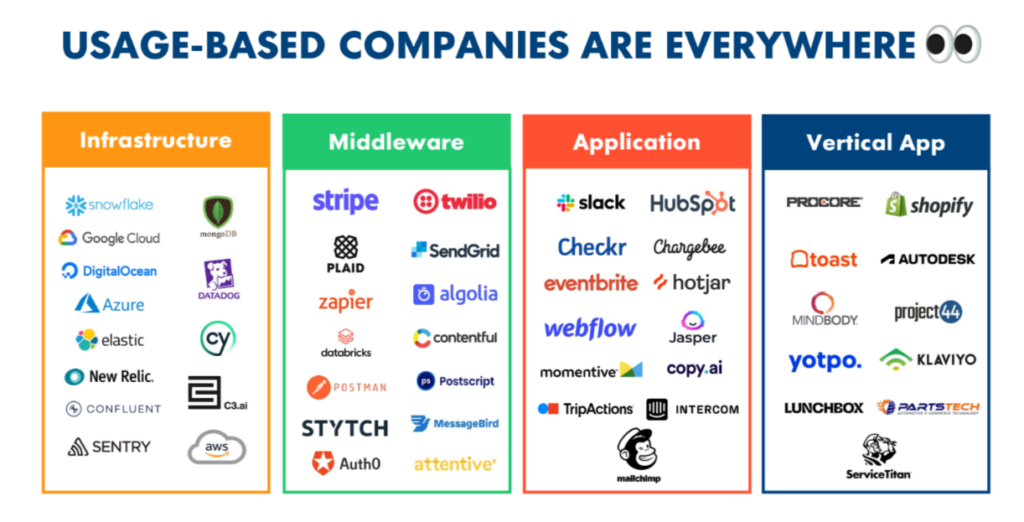Cloud marketplaces are rapidly becoming the fastest-growing channel for B2B software sales, with gross merchandise value (GMV) projected to reach $30 billion in 2024, reflecting a 115% year-over-year growth. Cloud marketplaces have transformed the way businesses procure, deploy, and scale software solutions. As we approach 2025, several trends are set to redefine the marketplace landscape. Here are five predictions for cloud marketplace in 2025:
1. Increased Adoption of AI-Driven Product Listings
Cloud marketplaces will become central hubs for deploying and scaling AI solutions across industries, solidifying their role as critical enablers of innovation. Sellers will gain from improved product visibility and higher conversion rates, while buyers will enjoy a seamless, intuitive shopping experience.

The convergence of AI and cloud services is making hyperscalers indispensable. By 2025, cloud marketplaces will leverage advanced AI algorithms to accelerate partner success and enhance customer experiences. Key developments include:
- Amazon Q: AWS’s generative AI assistant aims to achieve 80% savings in software development, helping companies maximize the value of their internal data.
- Amazon Bedrock: Expanded eligibility under AWS’s Migration Acceleration Program (MAP) includes Amazon Bedrock and third-party Large Language Models (LLMs), boosting partner support for AI/ML workloads.
- Azure AI Studio: Azure Marketplace introduces Models-as-a-Service (MaaS), enabling organizations to build AI applications faster with pre-trained models from Cohere, Meta, Mistral AI and deployed directly in Azure AI Studio.
- Salesforce & AWS Partnership: This collaboration is enabling businesses to build trusted AI applications more efficiently, highlighting integrated AI offerings within marketplaces.
As AI-driven solutions enter production, cloud marketplaces will play a pivotal role in scaling AI innovation across industries.
2. Expansion of Multi-Cloud and Hybrid Solutions
Increasing computational demands for model training and inference are pushing businesses to optimize performance across diverse cloud environments. By 2025, cloud marketplaces will support more complex configurations and offer tools for seamless integration across AWS, Azure, GCP, and others. For example:
- Cloud-Native Toolsets: Solutions like AWS SageMaker Pipelines, Azure ML Pipelines, and Google Vertex AI Pipelines provide end-to-end automation for data and model management.
- Multi-Cloud Optimization: Tools such as Datadog, Snowflake, and HashiCorp empower enterprises to manage operations efficiently across multiple clouds.
The adoption of multi-party private offers and robust go-to-market strategies will help ISVs maximize opportunities while mitigating vendor lock-in risks. The following table compares the services offered by major hyperscalers:
|
Service Area
|
AWS
|
Microsoft Azure
|
Google Cloud
|
|
Compute
|
EC2, Lambda, Lightsail, Batch, APP Runner, ECS
|
Virtual Machines, Azure Functions, App Services, Kubernetes Service, Container Apps, Batch, LVM
|
Compute Engine, Cloud Functions, App Engine, VMware Engine, Cloud Run, Recommender, Google Kubernetes Engine
|
|
Storage
|
S3, EBS, EFS, Backup, Glacier, Elastic Data Recovery
|
Data Lake Storage, Disk Storage, File Storage, Container Storage, Blob Storage, Azure NetApp Files
|
Cloud Storage, Persistent Disk, Filestore, Storage Transfer Service, Transfer Appliance, Nearline
|
|
Databases
|
RDS, SimpleDB, DynamoDB, DocumentDB, Aurora, RDS, Redshift
|
Azure Arc, Azure Stack, Azure SQL, Cosmos DB, Cache for Redis, Database Migration Service, Azure Database for MySQL, Azure Database for PostgreSQL
|
Cloud SQL, Firestore, Bigtable, Memorystore, Spanner, Datastream, AlloyDB
|
|
Machine learning (ML)
|
AmazonQ, SageMaker, Augmented AI, Bedrock, Amazon Q, CodeGuru, Comprehend, Forecast
|
Azure ML, Cognitive Search, OpenAI Service, AI Speech, AI Vision, AI Content Safety, DevOps
|
Gemini, Looker, Vertex AI Platform, AutoML, Dialogflow, Natural Language, Vision AI, Video AI
|
|
Security & identity
|
IAM, Shield, Cognito, Detective, Inspector, GuardDuty
|
Application Gateway, Microsoft Sentinel, Key Vault, Azure Firewall, Web Application Firewall, Azure DDoS Protection
|
IAM, Cloud IDS, Cloud Armor, Identity Platform, Cloud Key Management, Cloud Data Loss Prevention, Identity-Aware Proxy
|
|
Pay-as-you-go pricing
|
✔
|
✔
|
✔
|
3. Shift Toward Usage-Based Pricing Models
As customers seek more flexibility, usage-based pricing will dominate cloud marketplaces in 2025. This model allows businesses to pay based on consumption, reducing upfront costs and enabling scalable growth. Over 50% of companies now offer usage-based pricing, driven by its ability to lower barriers to entry and provide scalable adoption. And ISVs report a 3X higher conversion rate from free trials to pay-as-you-go (PAYG) models compared to fixed contracts.
Cloud marketplaces will support sophisticated metering and billing solutions, allowing ISVs to offer more customized pricing options that align with customer usage patterns.

4. Rise of Self-Serve Transaction Models
Cloud marketplaces are investing in self-serve capabilities to streamline the buyer journey, allowing customers to trial, evaluate, and purchase software with minimal friction.
At re:Invent 2023, AWS announced the AWS Marketplace SaaS Quick Launch feature, and at re:Invent 2024, AWS launched AI-powered comparisons and product recommendations for SaaS products and Buy with AWS.
By 2025, features like targeted transformation modules (TTM) will further enhance the self-serve experience. Sellers must prioritize clear product information, smooth onboarding, and compelling value propositions to engage these increasingly autonomous buyers.
5. Cloud Marketplace as a strategic priority for C-Suite
Cloud technology is now a strategic focus for executives, with hyperscalers driving $400 billion in commit opportunities by 2025. Organizations are absorbing co-sell costs to stay competitive and align with hyperscaler initiatives.
Key priorities for C-suite leaders include:
- Aligning cloud investments with business goals to maximize returns.
- Leveraging marketplace insights to drive innovation and efficiency.
Cloud marketplaces will continue to play a strategic role, serving as a bridge between enterprise needs and cutting-edge cloud capabilities.
Suger: Empowering Success in Cloud Marketplaces
As these trends reshape the marketplace landscape, Suger is at the forefront, empowering businesses to navigate this transformation. With an API-driven platform that simplifies listing, co-selling, and automating transactions across AWS, Azure, and GCP, Suger helps vendors:
- Rapid Onboarding: Minimize time-to-market with streamlined processes.
- Scale Seamlessly: Support multi-cloud strategies and usage-based pricing.
- Maximize Revenue: Leverage co-sell frameworks and AI-driven insights.
By partnering with Suger, businesses can embrace these marketplace trends, enhance efficiency, and achieve sustainable growth in 2025 and beyond. Contact us today!